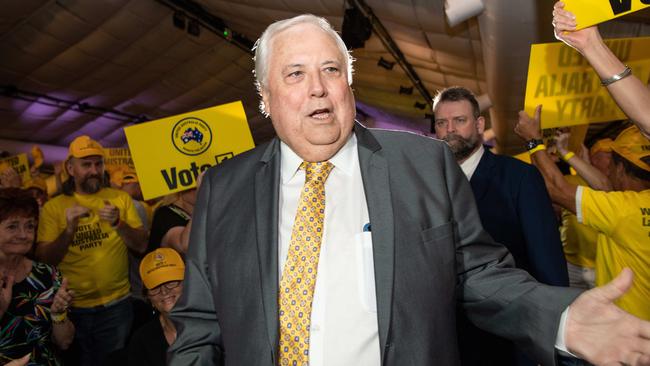Federal election 22: Pollsters having trouble getting read on key electorates
Polls point to an emphatic Labor win, but pollsters themselves say they’re having trouble getting a proper read on key elections – here’s why.
Federal Election
Don't miss out on the headlines from Federal Election. Followed categories will be added to My News.
Pollsters are finding it difficult to get a proper read on key electorates, with fed-up voters refusing to answer calls in the final run-up to the election.
Several pollsters who spoke to News Corp said the traditional marginal seats where Liberal and Labor are battling it out, and the “teal’’ seats where tight races are on between Liberals and Climate 200-backed independents, were being bombarded by thousands of calls from pollsters.
Traditionally it takes at least three calls to get one person to agree to a telephone survey, meaning each pollster conducting telephone polling needs to make around 3000 calls to get 1000 responses.
But voters are so fed up with being bombarded they’re refusing to answers calls from blocked numbers or from numbers they don’t recognise.
This means pollsters take longer to get a sample, and the issues have likely shifted or changed. It also means those who do answer are more likely to be politically engaged and not necessarily representative of the electorate.
Director at RedBridge Group, Kosmos Samaras, said the closer the election date came, the more difficult it was becoming to sample voter intentions in the key seats.
“People are tired of answering phone calls and they’ve just stopped answering,’’ he said.
Mr Samaras said it was also difficult to get a proper read on how many people intended to vote for Queensland billionaire Clive Palmer’s United Australia Party.

“The Palmer voters are very difficult people to poll because they don’t want to take part in the political process,’’ he said.
Young voters more likely to ignore calls from unknown phone numbers were also likely under-represented in polling.
YouGov has pioneered a new form of polling known as MRP (multi-level regression with post-stratification) to avoid the problems with telephone polling.
YouGov’s head of polling for Asia-Pacific, Campbell White, and data science lecturer at the University of Sydney, Shaun Ratcliff, also noted on Wednesday that “if you live in a marginal seat, you will be aware of lobby groups and some political parties spamming the electorate during campaigns”.
“This has led to people simply refusing to answer their phone, meaning participation rates have fallen even further. The result of all this is that such seat polls are not always accurate,’’ the pair wrote in The Australian.
Got a story tip? Email us at federalelection@news.com.au
Know some goss or seen something in your electorate? Contact us at election.confidential@news.com.au
More Coverage
Originally published as Federal election 22: Pollsters having trouble getting read on key electorates





